A delicate blend of medium-bodied black tea and rich aromatic spices, with earthy cinnamon highlights. This really is the perfect chai. This beautiful award winning chai contains plenty of lovely cinnamon chips and other warming herbs that help stimulate circulation, support healthy digestion and help balance blood sugar levels. This chai has received two silver Golden Leaf Awards at the Australian International Tea Expo 2019 & 2020.
Made with 100% organic cinnamon, black tea, ginger, cloves, cardamom, and aniseed.
ORIGIN: Sourced from certified organic farms in Nepal, Sri Lanka, Guatemala and Egypt.
MAKE: To make the perfect cup for one place 2 heap teaspoons of chai in a small saucepan with 1/4 cup water and 3/4 cup of milk (full cream, soy, coconut or almond works well). Bring to the boil and allow it to simmer for 5 minutes or more, to get a lovely rich, full flavoured chai. Delicious with some raw honey or try adding a medjool date to your pot when brewing for natural sweetness. Sprinkle with some cinnamon and enjoy!
COFFEE MACHINE: Place 2 heap teaspoons of chai in a milk jug then cover with 1/4 cup of boiling water. Allow chai to brew for 3 minutes. Heat your milk of choice with a milk frother and pour milk in with your chai. Blend and froth. Pour through a strainer and sprinkle with cinnamon to serve.
At Bodhi Organics your health and that of the planet is of utmost importance to us. That’s why we only use the highest quality certified organic teas and herbs in our blends. Our packaging is eco-friendly recyclable boxes and 100% biodegradable plant-based bags. We also recommend you reuse your used tea leaves to nourish your garden or pot plants. Your plants will love it!
True cinnamon (Cinnamomum Zeylanicum) is a beautiful warming herb that helps stimulate digestion and appetite. It can help sooth an upset stomach, relieve indigestion, excess wind, and nausea, and is beneficial for alleviating diarrhoea. Cinnamon has been found to help keep blood sugar levels balanced and improve insulin’s efficiency, making it an ideal spice for diabetics. Cinnamon is also very high in glutathione, the body’s major antioxidants. Cinnamon is also beneficial for enhancing circulation.
Black tea (Camellia sinensis) comes from the same plant as other varieties of tea (white, green, oolong). Black tea undergoes the most processing and oxidation of all the teas, giving it its distinctive aroma, taste and darker colour. It is during this longer oxidization process that high levels of antioxidants, theaflavins and thearubigins, are produced. These antioxidants which are unique to black tea are thought to give black tea some of its protective health benefits.
A 2012 study revealed that drinking around 3 cups of black tea daily can help support cardiovascular function by improving cholesterol levels, reducing triglyceride levels and boosting antioxidant protection. (1)
Risk of stroke is also lowered by 21% in those who enjoy 3 or more cups of black (or green) tea daily. (2)
Studies have also shown that black tea consumption can lower blood sugar levels and the chance of developing type-2 diabetes. Black tea contains polysaccharides which are effective in slowing down the absorption of glucose (more so than green or oolong teas), as well as neutralizing free radicals. (3)
In one long-term study individuals who drank 1-2 cups of black (or green) tea daily for 30 years or more had a 70% reduced risk of developing type-2 diabetes. (4)
Drinking black tea can also help you de-stress, by lowering cortisol levels (the body’s major stress hormone) effectively after a stressful event. (5)
Ginger (Zingiber officinale) is widely-known for its ability to relieve nausea associated with motion and morning sickness, however this impressive spice posses many healing powers. It can boost immune function, reduce inflammation in the body, and ease digestive complaints such as wind. Ginger has been shown to lower high cholesterol and triglyceride levels, while raising beneficial HDLs. Ginger has the ability to reduce platelet stickiness,which helps improve circulation and reduce the risk of heart attacks and thrombotic strokes. Ginger has anti-inflammatory properties that can help relieve inflammation and pain associated with arthritis.
Cloves (Syzygium aromaticum) are benefical for improving digestive disorders, including excess wind and indigestion. Cloves also possess antibacterial properties and has been used traditionally in Ayuverdic medicine to treat oral conditions such as tooth decay and halitosis. Cloves are also considered an aphrodisiac in Chinese medicine.
Cardamom (Elettaria cardamomum) is an ancient spice traditionally used in Ayverdic medicine for centuries to treat digestive complaints and dental and oral disorders. It is also thought to be beneficals for treating and preventing depression and along with being a good aphrodisiac.
Aniseed (Pimpinella anisum) with its licorice-like taste has been used historically to treat sleeplessness and insomnia. Aniseed is also a great digestive herb, relieving wind and upset stomachs, due to its calmative effect.
References:
(1) Theeshan Bahorun, Amitabye Luximon-Ramma, Vidushi S. Neergheen-Bhujun, Teeluck Kumar Gunness, Kreshna Googoolye, Cyril Auger, Alan Crozier, Okezie I. Aruoma. The effect of black tea on risk factors of cardiovascular disease in a normal population. Preventive Medicine, Volume 54, Issue null, Pages S98-S102.
(2) Arab L, Liu, Elashoff D. Green and black tea consumption and risk of stroke: a meta-analysis. Stroke. 2009 May;40(5):1786-92.
(3) Haixia Chen, Zhishuang Qu, Lingling Fu, Peng Dong andXin Zhang.Physicochemical Properties and Antioxidant Capacity of 3 Polysaccharides from Green Tea, Oolong Tea, and Black Tea. Journal of Food Science. Vol 74, Issue 6, pages C469-C474, Aug 2009.
(4) Demosthenes B. Panagiotakos, Christos Lionis etal. Long-Term Tea Intake is Associated with Reduced Prevalence of (Type 2) Diabetes Mellitus among Elderly People from Mediterranean Islands: MEDIS Epidemiological Study. Yonsei Med J. 2009 Feb 28; 50(1): 31–38.
(5) Andrew Steptoe , E. Leigh Gibson, Raisa Vounonvirta, Emily D. Williams, Mark Hamer, Jane A. Rycroft, Jorge D Erusalimsky, Jane Wardle The effects of tea on psychophysiological stress responsivity and post-stress recovery: a randomised double-blind trial. Psychopharmacology. January 2007, Volume 190, Issue 1, pp 81-89
| 1/4 cup water and 3/4 milk | |
| 100 *C | |
| 2 heap tsp | |
| bring to boil then simmer / 5 min |
This chai is made with black tea so it does contain some caffeine.

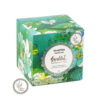
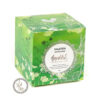
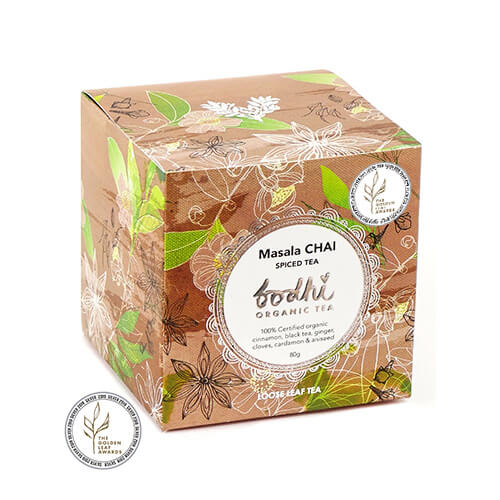
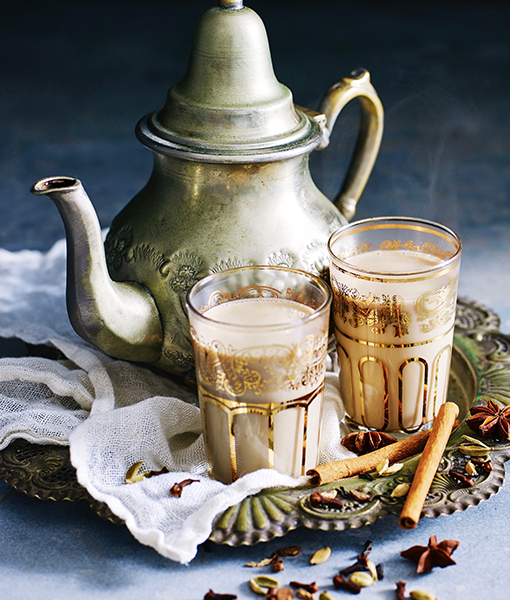
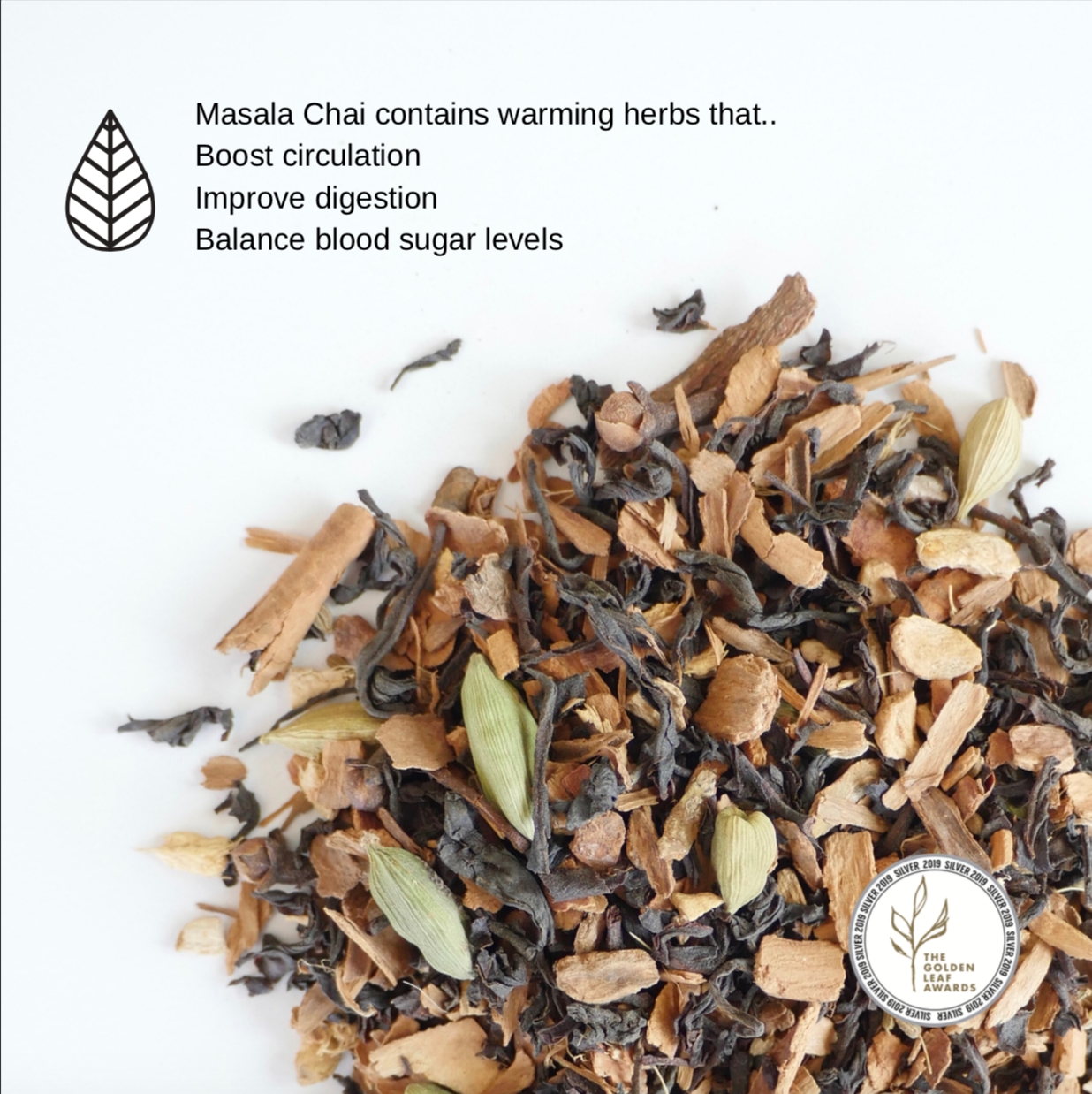
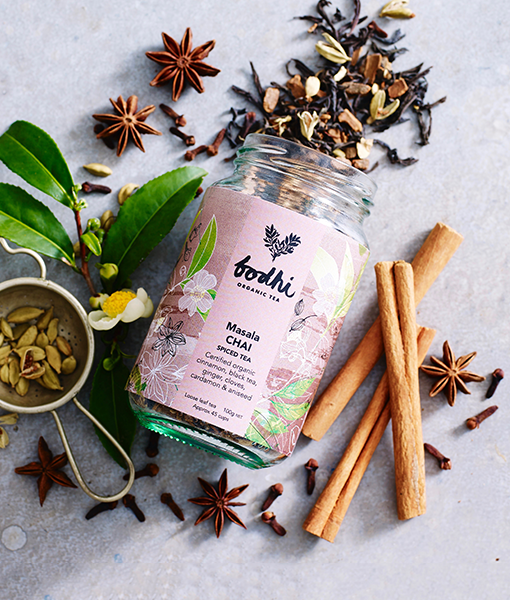
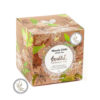
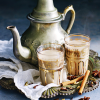
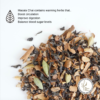
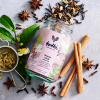
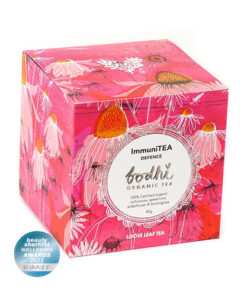
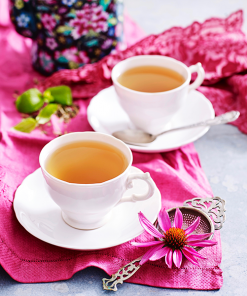
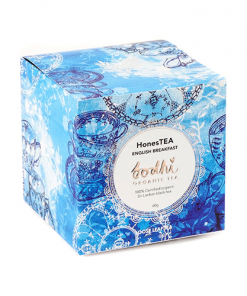
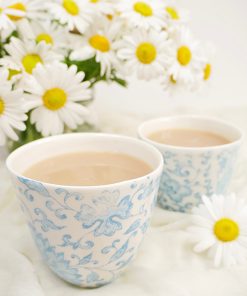
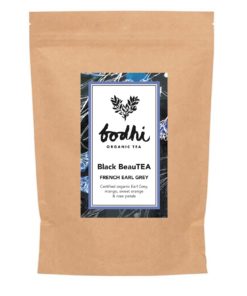
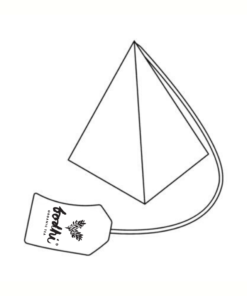
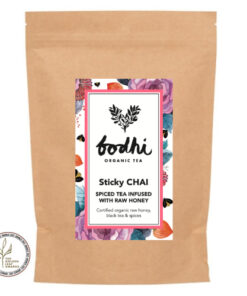
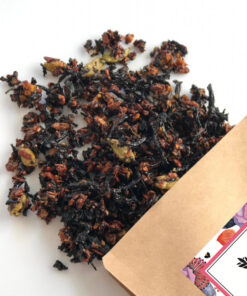
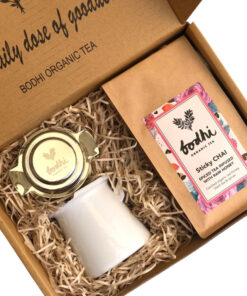
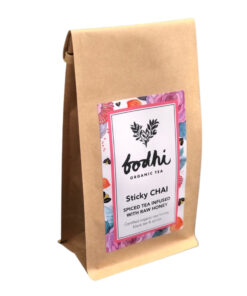
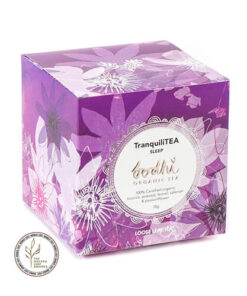
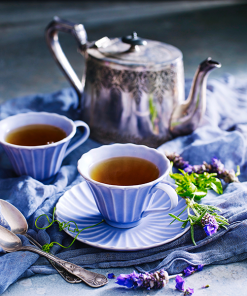
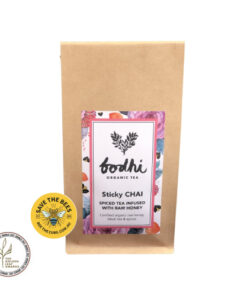
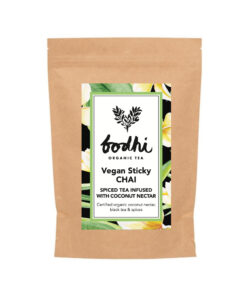
Tania (verified owner) –
Love this tea in winter – perfect blend of chai spices to drink throughout the day to keep me warm
Michelle –
I just love this perfectly spiced Chai!! Such a beautiful, soothing tea!
Melissa –
The Aroma of this tea is Divine, it takes me to exotic places!!!!
Fi –
This tea is my favorite Chai of all time, it’s also a crowd favorite in my neck of the woods…..
PS please mention to Lisa that I love her teas! I have 3 jars of Chai plus the tea canister😘 xxx
Julie D. (verified owner) –
Best Chai. I love it!
Tracey Gibbons (verified owner) –